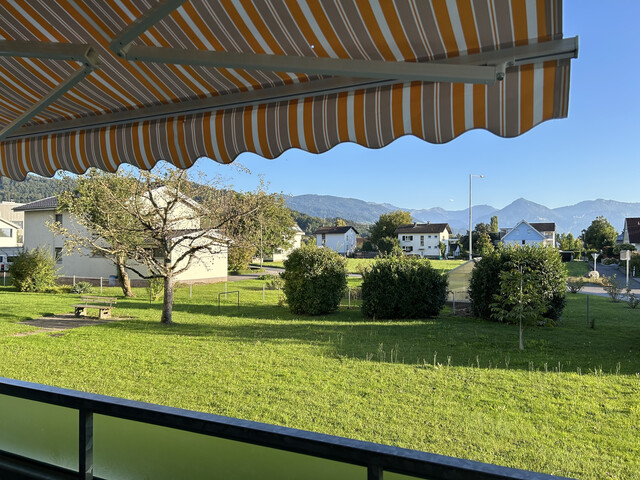Early Retirement for Caregivers Possible from 2026

The federal government has now officially initiated the expansion of heavy labor to include caregiving professions, which was announced in the spring. The corresponding regulation was approved by the Council of Ministers via a circular resolution, as stated in a background discussion by Minister of Social Affairs Korinna Schumann (SPÖ) and the social spokespersons of ÖVP and NEOS, August Wöginger and Johannes Gasser. This will allow around 1,000 caregivers per year to benefit from the heavy labor pension.
Planned Inclusion in Heavy Labor Regulation Decided
The expansion is to be implemented as announced on January 1, 2026. Caregiving professions will then be explicitly recognized as heavy labor. The new regulation will benefit certified health and nursing staff, nursing assistants, and nursing support staff. Part-time workers will also be able to take advantage of the model - starting from an employment level of 50 percent.
Necessary Number of Heavy Labor Days Reduced in Caregiving
A significant step is the reduction of the necessary number of heavy labor days per month, which will be reduced from 15 to twelve, Schumann emphasized once again. This means that the requirements will be "much more realistically" met in the future.
"We are finally implementing this now," said the head of the department. Caregiving is heavy labor, "both mentally and physically." "This reform is a necessary act of appreciation" and a long-standing demand from the Chamber of Labor and trade unions.
"Promised - delivered," said ÖVP club chairman Wöginger. "We decided on this in the government negotiations, now we are implementing it, and the regulation will come into force in time on January 1." The step is a "matter of justice." He announced that he would also like to look at the heavy labor regulation for other professional groups.
NEOS social spokesperson Gasser also expressed "joy" over the regulation, also referring to the reduction of the necessary days: "We found that there were simply regulations in place that systematically led to disadvantages" - because too few heavy labor months were determined due to the calculation of working days per month.
Around 1,000 Caregivers Per Year to Benefit
According to the Ministry of Social Affairs, around 8,000 people in total (from all sectors) have been able to take advantage of the heavy labor regulation so far - but only a few caregivers. The government expects the new regulation to result in around 1,000 eligible individuals from the care sector - per year.
The general requirement for entering the heavy labor pension is a minimum insurance period of 45 years, of which at least ten years must have been heavy labor (within the last 20 years). The earliest retirement age is 60 years.
Around 20 Million Costs in the First Year
Gasser estimated the expected costs at about 20 million euros in the first year, after which they are likely to continue to rise. The aim is to finance this with reforms in the temporary disability pension ("rehabilitation money"), the disability pension, or the occupational disability pension, the NEOS social spokesperson reminded of a project from the government program, for which a working group has already been started. The goal is to keep people with health restrictions in the workforce longer.
According to the government program, the goal here is to create "more flexible options" for assessing work capacity with health restrictions, such as the introduction of intermediate stages and partial work capacity. Among other things, a "further development" of the currently applicable occupational protection to a "wage protection" should be examined. The AMS should be better involved in reintegration into the labor market. Rehabilitation measures during the benefit period should also be promoted according to the government program. Gasser emphasized to the APA the goal of creating the possibility of "partial work capacity," allowing people with health restrictions to work fewer days, for example.
Unions and Greens Delighted
The employee representation reacted predictably positively. "The inclusion of caregivers in the heavy labor regulation is a real milestone for employees in care, a highly sensitive area," said ÖGB care expert Martina Lackner in a statement. GPA chairwoman Barbara Teiber also saw an important step but emphasized that one must "not stop halfway." The vida union and the GÖD health union also welcomed the regulation, as did Volkshilfe and the Samaritan Association.
The Greens also reacted fundamentally pleased with the "overdue step." "However, anyone who believes that this has created real relief for caregivers misunderstands the reality of the employees' lives," noted care spokesperson Ralph Schallmeiner. In contrast, the freedom social spokesperson Dagmar Belakowitsch described the innovation as a "nasty marketing trick of the loser traffic light." She misses a "real care offensive."
(APA/Red)
This article has been automatically translated, read the original article here.
Du hast einen Hinweis für uns? Oder einen Insider-Tipp, was bei dir in der Gegend gerade passiert? Dann melde dich bei uns, damit wir darüber berichten können.
Wir gehen allen Hinweisen nach, die wir erhalten. Und damit wir schon einen Vorgeschmack und einen guten Überblick bekommen, freuen wir uns über Fotos, Videos oder Texte. Einfach das Formular unten ausfüllen und schon landet dein Tipp bei uns in der Redaktion.
Alternativ kannst du uns direkt über WhatsApp kontaktieren: Zum WhatsApp Chat
Herzlichen Dank für deine Zusendung.








